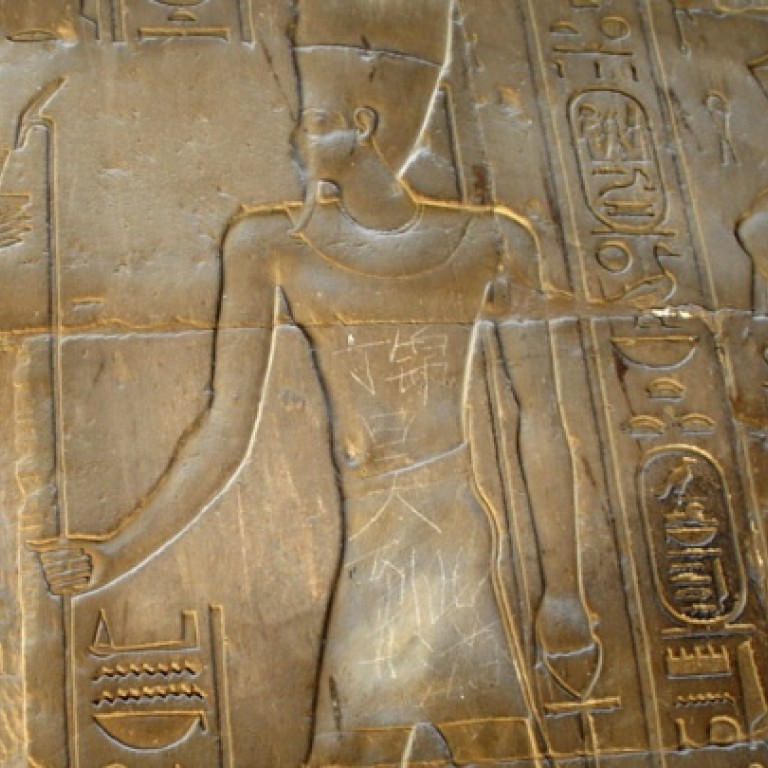
People's Daily's anti-American rant backfires as Chinese teen trashes ancient Egyptian temple
Papers, news portals and bloggers form chorus of criticism as red-faced party mouthpiece drops entire column
A Nanjing teenager became famous literally overnight after photos appeared online of self-incriminating graffiti he left at the Temple of Luxor in Egypt.
The teenager's act of vandalism - he scratched the words "Ding Jinhao was here" in Chinese characters on a 35-century-old sculpture - struck a raw nerve in a in a country so proud of its ancient civilisation. And, embarrassingly, it followed an astonishing attack by the Communist Party mouthpiece that labelled Americans untrustworthy and lacking in integrity.
Early last week, internet users found the online version of had quietly run an editorial entitled "Americans lack virtue and reputation". Its introduction said that although most Chinese believe Americans are honest and reliable, "once you spend enough time in the US, you will find that you have been misled".
admitted that not all people in the US were dishonest or immoral, but it nevertheless urged readers to share their worst experiences of dealing with Americans to help other Chinese get a better understanding of "real" statesiders.
The column, however, has become a national joke among a public more likely to point the finger at Chinese society over corruption and dishonesty, from dairy companies selling tainted milk to officials obtaining degrees from colleges that don't exist.
"Our mouthpiece has become the watchdog of the US government, while the Chinese public wants it to spend more time overseeing our own government," said a popular post on the Sina Weibo microblog service.
, China's biggest circulation newspaper, said that even the name of the column "was ridiculed by readers".
"Even during the time of Mao Zedong , which was the peak of anti-US propaganda, there was a clear distinction between 'the US government' and 'the US people,'" it said. "The US government was evil, but the American people were good."
It also asked why, if America and its people were so repugnant, were so many Chinese officials eager to send their children there.
Henan's said it was unbecoming of the party mouthpiece to resort to derogatory language to belittle another nation, and that it wasn't fair to whip up public prejudice based on a few cases.
changed the column's headline to "The Americans you don't know", following the criticism online, and then dropped the entire column.
Online discussion of
"Chinese tourists love leaving graffiti of the 'X was here' format," the editor of the page wrote in an introduction. "They do it not only to cultural relics but even to trees and plants."
Shenzhen's said mainlanders should not be embarrassed only because such acts happen abroad.
"We should also feel ashamed when we see similar acts in our own country," it said.
The English version of an affiliate of the attempted to defend the honour of its parent publisher.
In an editorial on Monday entitled, "Graffiti at tourist sites is not an ugly pattern of Chinese", It said: "To scratch one's name on cultural relics at tourist sites is not a custom unique to Chinese, but is a natural physical act of all nationalities based on their desire for remembrance."
